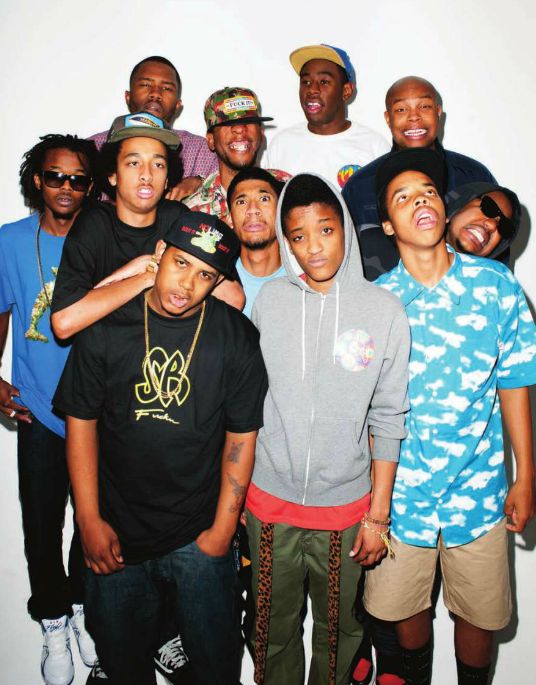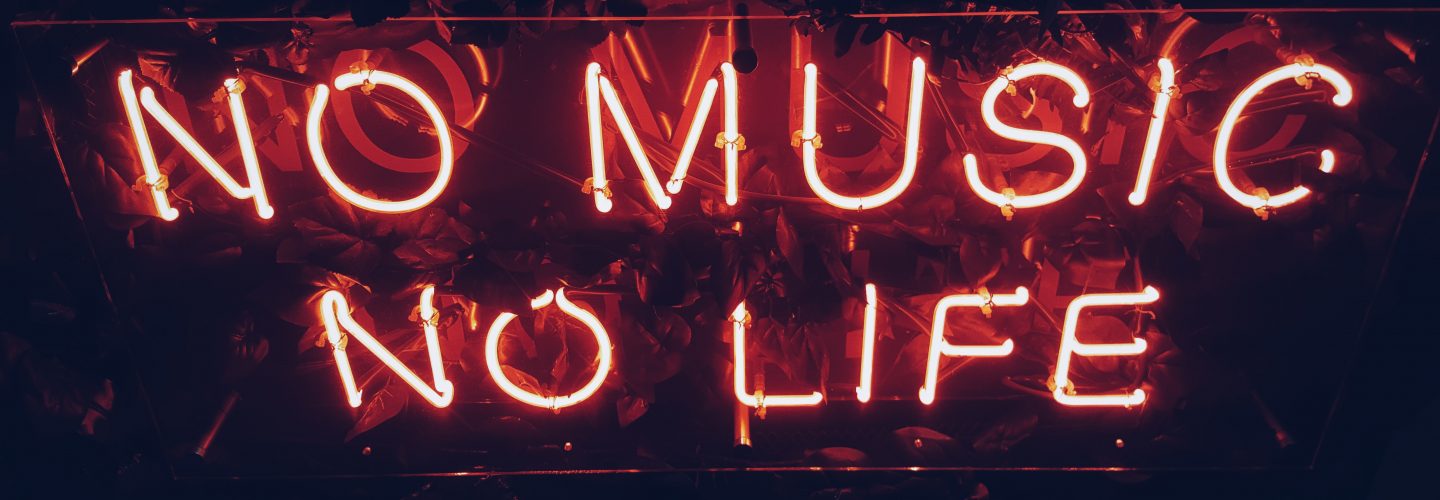Homosexual artists have had a long and complicated history within the music industry. While gay artists have continuously made contributions to music for centuries, these contributions have been continuously denied and erased as a reflection of our hetero-centric culture. This is due to the dominant view that heterosexual relationships are at the heart of human association and are the model for intergender relations. Despite this, queer artists have continued to have an insurmountable impact on the music industry. Artists such as Marc Blitzstein, David Diamond, Pawl Bowles, and many more have all released pieces that have stood the test of time and made significant impacts on the creation of “American sounding” music. Even more than these figures, Aaron Copland was considered an acclaimed and distinguished composer. Despite his queer status at a time when being queer was taboo, he became known as America’s most prominent composer, and provided film scores for films such as Of Mice and Men, The North Star, and The Heiress. He became known for the way in which he would provide his own spin on American Folk songs, innovating them with his own distinctive style. 31 years after the death of Copland, new homosexual artists are picking up his mantle and making their own contributions to their respective genres. Since coming out of the closet in 2017, rapper Tyler, the Creator has continued to be innovative within the rap community. However, his willingness to innovate is not the only trait he shares with Copland and respective homosexual artists. The denial and erasure of queer artists has created a community in which secrecy is promoted and bonds between gay artists are created, as is the case with Copland and Tyler.
While Copland was never in the Army and simply made music that evoked American themes, his sexuality was treated with the same “don’t ask, don’t tell” policy that the military instituted1HUBBS, NADINE. “INTRODUCTION.: Composing Oneself.” In The Queer Composition of America’s Sound: Gay Modernists, American Music, and National Identity, 1-18. BERKELEY; LOS ANGELES; LONDON: University of California Press, 2004. Accessed April 26, 2021. http://www.jstor.org/stable/10.1525/j.ctt1ppg9r.4.. Because of his utilization of this type of policy, he was seen as an ideal model for patriotism. Despite never going out his way to hide his homosexual relationships, he was never too outspoken about his sexuality. When pushed by his friend and fellow homosexual composer Leonard Bernstein to publicly come out of the closet, he responded with “I think I’ll leave that to you, boy”2Mary Kunz Goldman. “Aaron Copland A Fanfare For An Uncommon Man.” The Buffalo News, January 16, 2000. https://buffalonews.com/news/aaron-copland-a-fanfare-for-an-uncommon-man/article_8e7f59b5-e57b-5256-8e32-64b51b57f2ed.html.. Tyler, the Creator has also consistently utilized his own version of the “don’t ask, don’t tell policy” since coming out of the closet. However, unlike with Copland, his secrecy was not rooted in patriotism. Tyler has never said he was homosexual outright, but instead left cryptic and often confusing messages within his music. On the song ‘I Ain’t Got Time’, he raps, “I’ve been kissing white boys since 2004”. This subtle admission in the midst of the popular single immediately took fans by surprise. Even more so, on the same album on the song ‘Garden Shed’, he sings, “Truth is, since a youth kid, thought it was a phase”. Despite having many opportunities to clarify his sexuality in the public eye, Tyler has chosen to remain silent and let fans interpret the music as they choose.
The reasons behind the closeted nature of their homosexuality are varied and extremely nuanced. During the time Copland was releasing music, the country was still overwhelming hetero-centric. Homosexuality was often viewed as sexual perversion and was not yet accepted in the mainstream. While most of Copland’s most iconic pieces were released in the 1930’s, 1940’s, and 1950’s, Stonewall and the gay liberation movement would not achieve prominence until the 1960’s. The result of this movement was a level of solidarity and political representation for homosexual groups that helped thousands more comfortably embrace their homosexuality. Because of this timing, Copland believed that coming out as homosexual would threaten to undermine his legitimacy as an artist in the public eye. While Tyler, the Creator would not be born until multiple decades after Stonewall, he still faced plenty of homophobia within his industry. Despite the notability of the LGBTQ+ movement in the 2010’s, homophobia has continued to run rampant within the hip-hop community. There is a sense of hypermasculinity associated with hip-hop that creates a dangerous space for homosexuals who hope to enter the industry3Richardson, Harry. “Hypermasculinity And Hip Hop.” The Odyssey Online, August 2, 2016. https://www.theodysseyonline.com/hypermasculinity-and-hiphop.. This hypermasculinity is rooted in the genre due to the constant lyrical discussion of topics such as guns, anonymous sex with women, and drugs use, as well as through the pervasiveness of the bass and percussion. This hypermasculinity and homophobia manifested itself in 2017 after Atlanta rapper iLoveMakonnen came out of the closet. Shortly there afterward, he received a barrage of tweets and hate mail, and popular rapper Quavo even criticized those who showed Makonnen support. He believed that his homosexuality subverted his masculinity, saying, “He first came out talking about trapping and selling Molly, doing all that. That’s wack bro.” There is no doubt that the prominence of such homophobia influenced Tyler, the Creator stay in the closet as long as he did.
Another factor that influenced this “don’t ask, don’t tell” was the visibility of internalized homophobia among artists. Often times, queer individuals can feel contempt towards LGBTQ people who don’t “blend in” to their communities. This manifests itself in the form of secrecy and problems with intimacy. Without a doubt, this played a role in Copland’s decision to downplay his sexuality. While he did not try to hide his queer relationships, he was protective of his privacy, and hid his emotions as a symptom of his anxiety as a homosexual individual. However, Tyler, the Creator’s internalized homophobia is much more prevalent, especially within his early music. Despite continuously denying early accusations of homophobia, his use of anti-gay language hints at his negative preconceived notions of LGBTQ individuals. On his 2011 album ‘Goblin’, he used anti-gay language a total of 213 times and used a variation of the word “f*ggot” 9 times4Martin, Daniel. “Tyler, The Creator: ‘My Gay Fans Don’t Find My Language Offensive.’” NME (blog), June 16, 2011. https://www.nme.com/news/music/odd-future-82-1278567.. One of his lyrics read, “I’ll crash that fucking airplane that that f*ggot n*gga B.o.B is in.” Despite this, the album was still received with widespread critical acclaim, earning Tyler the MTV award for Best New Artist. He responded to accusations of homophobia by saying, “I’m not homophobic. I just think ‘f*ggot hits and hurts people. It hits. And ‘gay’ just means you’re stupid. I don’t know, we don’t think about it, we’re just kids. We don’t think about that shit. But I don’t hate gay people. I don’t want anyone to think I’m homophobic.” When addressing this criticism, Tyler speaks about his affinity for trying to offend his audience with his lyrics. However, his association of the word ‘gay’ with ‘stupid’ addresses how this homophobia is rooted deep within the rap community.
The denial of gay artists has promoted an environment in which extensive bonds between homosexual musicians are created. Gay alliances and networking activity within the homosexual composer community were extremely prominent, and helped these artists share their queer status in a hetero-centric space5HUBBS, NADINE. “INTRODUCTION.: Composing Oneself.” In The Queer Composition of America’s Sound: Gay Modernists, American Music, and National Identity, 1-18. BERKELEY; LOS ANGELES; LONDON: University of California Press, 2004. Accessed April 26, 2021. http://www.jstor.org/stable/10.1525/j.ctt1ppg9r.4.. Due to the unspeakable nature of their sexuality among outsiders, these bonds were created by the secrecy these musicians shared. The interdimensionality that connected these musicians was highlighted by the close relationship of Aaron Copland and Paul Bowles. Additionally, this connection was also evident when looking at Blitzstein, who, while still discovering his sexuality, lost his virginity to Alexander Smallens, another conductor who later aided Bowles in getting hired into a critic’s post. These artists felt a responsibility to guard each other’s homosexual identities, as they believed their survival was dependent on their secrecy, especially pre-World War II. They joined social and professional alliances with other gay musicians in order to limit the threats of social ostracism, as well as potential economic losses. These alliances are also present in the modern day, and Tyler, the Creator has formed many close relationships with other artists within the LGBTQ community. Most prominently, Tyler formed a close bond with singer Frank Ocean. Both were founding members of the rap group Odd Future, which catapulted both artists to mainstream success. Tyler, the Creator revealed in a viral interview that he knew Ocean was gay even before he publicly came out, saying, “Yeah, I was one of the first people he came out to. I kind of knew he was gay because he likes Pop Tarts without the frosting on them, so I knew something was weird6Nick, Levine. “Frank Ocean Told Tyler, the Creator about His Sexuality ‘a Long Time Ago.’” NME (blog), July 6, 2012. https://www.nme.com/news/music/frank-ocean-120-1270379..” The close relationship these two artists shared is an indicator of alliances gay artists form, and the secrecy that held between them. The relevance of these alliances is also evident from the relationship between Tyler and another member of Odd Future, Syd tha Kid. Syd is a lesbian musician and another founding member of Odd Future. Between these three musicians, Odd Future acted as a vessel for the alliances, allowing the artists to share bonds that promoted secrecy without being subject from extensive criticism from homophobic members of the community.


The road to success for homosexual artists is not an easy one. Due to our hetero-centric society, their contributions to music have been denied for decades. Thus, these artists have felt the need to shield their identities. Artists like Aaron Copland has chosen to remain extremely private, refusing to share details of his homosexuality. Meanwhile, more modern artists like Tyler, the Creator have shielded their homosexuality in different ways, like through vague lyrics that only hint at his queer status. As a consequence of the need for secrecy, alliances form between gay artists, allowing them to express themselves within their communities. This was evident among modernist composers like Copland, Paul Bowles, and Marc Blitzstein. These alliances granted the artists extensive networking opportunities and aided them in shielding their identities. Furthermore, modern groups like Odd Future have acted as queer alliance in itself, allowing artists such as Tyler, the Creator, Sid tha Kid, and Frank Ocean to protect themselves within a historically homophobic community.
References
| ↑1, ↑5 | HUBBS, NADINE. “INTRODUCTION.: Composing Oneself.” In The Queer Composition of America’s Sound: Gay Modernists, American Music, and National Identity, 1-18. BERKELEY; LOS ANGELES; LONDON: University of California Press, 2004. Accessed April 26, 2021. http://www.jstor.org/stable/10.1525/j.ctt1ppg9r.4. |
|---|---|
| ↑2 | Mary Kunz Goldman. “Aaron Copland A Fanfare For An Uncommon Man.” The Buffalo News, January 16, 2000. https://buffalonews.com/news/aaron-copland-a-fanfare-for-an-uncommon-man/article_8e7f59b5-e57b-5256-8e32-64b51b57f2ed.html. |
| ↑3 | Richardson, Harry. “Hypermasculinity And Hip Hop.” The Odyssey Online, August 2, 2016. https://www.theodysseyonline.com/hypermasculinity-and-hiphop. |
| ↑4 | Martin, Daniel. “Tyler, The Creator: ‘My Gay Fans Don’t Find My Language Offensive.’” NME (blog), June 16, 2011. https://www.nme.com/news/music/odd-future-82-1278567. |
| ↑6 | Nick, Levine. “Frank Ocean Told Tyler, the Creator about His Sexuality ‘a Long Time Ago.’” NME (blog), July 6, 2012. https://www.nme.com/news/music/frank-ocean-120-1270379. |
